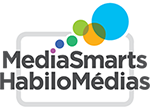Arguments
Have students access the student chapter Arguments and go through the first section (up to the “Building Arguments” boxed text) with the class.
Remind students how to remember the difference between facts and opinions from the Facts Versus Opinions chapter:
- If the question is “What do you think?”, the answer is an opinion.
- If the question is “How do you know?”, the answer is a fact.
We can use this to test whether our opinions are supported by facts.
Next go through the boxed text.
Have students work in pairs or small groups to sort the facts listed into ones that support the opinion “Going to the moon was humanity’s greatest achievement,” ones that support the opinion “Going to the moon
was a waste of money,” and ones that do not support either opinion.
The final list should look like this:
Going to the moon was humanity’s greatest achievement:
- Photos of the Earth, taken from the moon, made many people more aware how fragile the Earth’s environment is.
- Many technologies we use today were developed as part of the space program.
- 400,000 people were involved in the space program and the moon landing.
- People have been imagining trips to the moon since at least the 2nd Century CE.
Going to the moon was a waste of money:
- The first moon landing cost about two and a half billion dollars.
- Chemicals in the rockets that sent astronauts to the moon contributed to climate change.
- Spending time in space is bad for astronauts. It weakens their bones and increases the risks of several diseases.
Does not support either opinion:
- The moon’s gravity is one-sixth as strong as the Earth’s.
Now ask students: Which of these facts provide the strongest or most convincing argument for each opinion? How can we tell?
- There is no right or best answer; the point is to get students thinking about how facts may be stronger or weaker supports for an argument.
